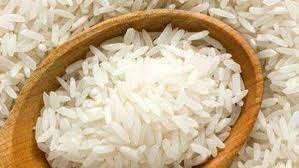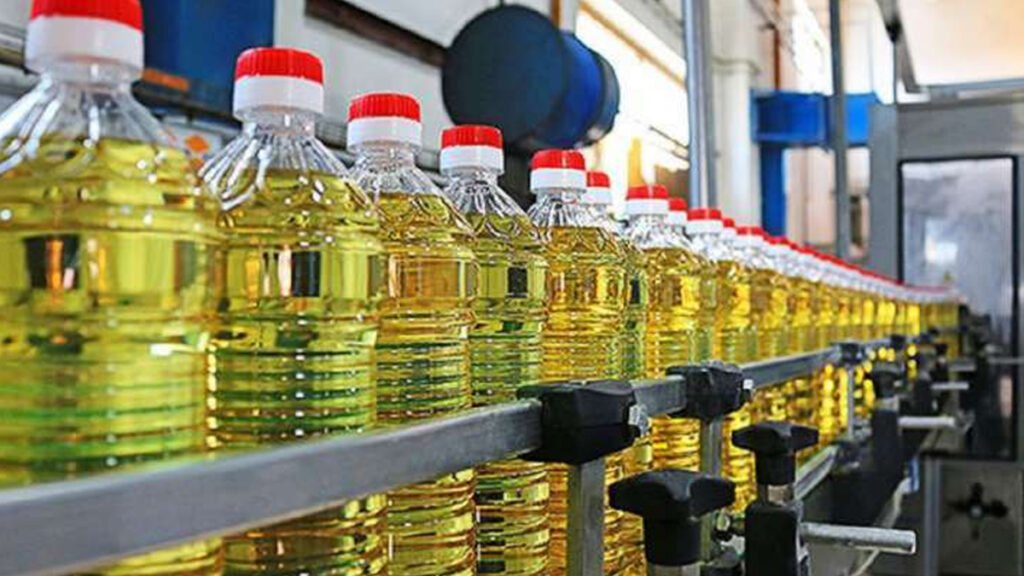Blog
MAY 31st Current Affairs
- May 31, 2021
- Posted by: admin
- Category: Culture Current Affairs Daily News Defense & Security Disaster Management Economy Education Environment & Ecology Ethics Geography Governance Health History International Relation Persons in News Polity Science & Technology Social Issues Sports Uncategorized UPSC Notification Videos
1. Bal Swaraj (Covid-Care)

IN NEWS:
NCPCR Asks States/UTS to Upload Data of Children Who Have Lost Both or Either of The Parent To Covid-19 On Online Tracking Portal “Bal Swaraj (Covid-Care)”.
KEY POINTS:
- The National Commission for Protection of Child Rights (NCPCR), in furtherance to its function as a monitoring authority under section 109 of the Juvenile Justice Act, 2015 and in view of the growing problem related to children affected by COVID-19, has devised an online tracking portal “Bal Swaraj (COVID-Care link)” for child in need of care and protection.
- This portal of the Commission has been created with a purpose for online tracking and digital real time monitoring mechanism of children who are in need of care and protection.
- The Commission has extended the use of this portal for tracking children who have lost both its parents or either of the parent during COVID-19 and provided a link under the name of “COVID-Care” for uploading of data of such children by the concerned officer/department on the portal.
- The children who have lost family support or are without any ostensible means of subsistence are children in need of care and protection under Section 2(14) of the Juvenile Justice Act, 2015 and all procedures given under the Act for such children must be followed to ensure the well-being and best interest of children.
- NCPCR is a statutory body and works under the aegis of Ministry of Women and Child Development, Govt. of India.
BALSWARAJ PORTAL:
- “Bal Swaraj-COVID-Care”portal is aimed at tracking the children affected by COVID-19 right from the production of children before the Child Welfare Committee (CWC) to the restoration of the children to their parent/guardian/relative and its subsequent follow-up.
- Through the data filled in the portal by the District officers and State officers for each child, the Commission will be able to get information about whether the child is being able to get his/her entitlements, benefits and monetary gains for which the child is entitled to.
- It will also come to know whether the child has been produced before the CWC and the orders are being passed for him/her.
- The Commission can also identify if the State is needing financial assistance in getting more funds for giving benefit under implemented schemes to the children.
SOURCE:PIB
2. HRMN 99

IN NEWS:
Low-chilling apple variety developed by Himachal farmer spreads far & wide
KEY POINTS:
- A farmer from Himachal Pradesh has developed an innovative self-pollinating apple variety that does not require long chilling hours for flowering and fruit setting.
- This has spread to plain, tropical, and subtropical areas in various parts of India, where the temperature is as high as40 -45 ºC during summer.
- Commercial cultivation of this apple variety has been initiated in Manipur, Jammu, low lying areas of Himachal Pradesh, Karnataka Chhattisgarh, and Telangana, and fruit setting has been expanded to 23 states & UTs so far.
- Shri Hariman Sharma, a progressive farmer, hailing from Paniala village of Bilaspur district, Himachal Pradesh, who developed this innovative apple variety – HRMN 99 has become a source of inspiration not only for thousands of farmers in the region but also for horticulturists of Bilaspur and other lower hill districts in the State –areas which earlier could never dream of growing apples.
- The innovative variety was scouted by the National Innovation Foundation (NIF) – India, an autonomous body of the Department of Science and Technology (DST), Government of India. NIF verified the claims of the innovator and evaluated the distinctiveness and potentiality of the variety by facilitating molecular & diversity analysis studies and fruit quality testing.
- NIF also provided financial and technical support for establishing and expanding the nursery, besides aiding the registration of the variety under the Protection of Plant Variety and Farmers Right Act, 2001.
SOURCE:PIB
3. YUVA (Young, Upcoming and Versatile Authors)

IN NEWS:
- Government launches YUVA – Prime Minister’s Scheme For Mentoring Young Authors
- Author Mentorship programme to train young and budding authors
- Young Writers to pay tribute to heroes of India’s freedom struggle to mark celebrations of India @75
KEY POINTS:
- The launch of YUVA (Young, Upcoming and Versatile Authors) is in tune with PM’s vision to encourage young writers to write about India’s freedom struggle.
- YUVA is a part of India@75 Project (Azadi Ka Amrit Mahotsav) to bring to the fore the perspectives of the young generation of writers on themes like Unsung Heroes, Freedom Fighters, Unknown and Forgotten Places and their role in National Movement, and other related themes in an innovative and creative manner.
- The National Book Trust, India under the Ministry of Education as the Implementing Agency will ensure phase-wise execution of the Scheme under well-defined stages of mentorship.
- The books prepared under this scheme will be published by National Book Trust, India; and will also be translated into other Indian languages ensuring the exchange of culture and literature, thereby promoting ‘Ek Bharat Shreshtha Bharat’.
Important Information:
Highlights of YUVA (Young, Upcoming and Versatile Authors):
- A total of 75 authors will be selected through an All India Contest to be conducted through https://www.mygov.in/ from 1 June – 31 July 2021.
- The winners will be announced on 15 August 2021.
- The young authors will be trained by eminent authors/mentors.
- Under the mentorship, the manuscripts will be readied by 15 Dec. 2021 for publication.
- The published books will be launched on 12 January 2022 on the occasion of National Youth Day (Yuva Diwas).
- A consolidated scholarship of Rs.50,000 per month for a period of six months per author will be paid under the Mentorship Scheme.
SOURCE:TH
4. Village rice.

IN NEWS:
- Fibre & protein rice ‘village rice’ from Tamil Nadu exported to Ghana & Yemen.
- Non-basmati rice exports witnessed an impressive growth of 146 per cent during 2020-21.
KEY POINTS:
- In a major boost to India’s non-basmati rice exports potential, two consignments 4.5 MT of patented ‘village rice’ sourced from Kumbakonam, Thanjavur district, Tamil Nadu by a start-up Udaya Agro Farm was exported today to Ghana & Yemen via air & sea routes.
- Enriched with protein, fibre, and a variety of minerals, ‘village rice’ is sourced directly from farmers of Thanjavur, also known as rice bowl of Tamil Nadu.
- APEDA assisted Udaya Agro Farm plans to increase volume of exports of ‘village rice’ in the coming months.
- During the 2020-21, the shipment of non-basmati rice witnessed an impressive spike.
- The non-basmati rice exports were Rs 35,448 crore (4796 US$ Million) during April-March, 2021 against Rs 14,400 crore (2020 US$ Million) reported during April-March, 2020 period. The exports of non-Basmati have witnessed a growth of 146 % in Rupee terms and 137 % Dollar terms in 2020-2021.
- Earlier this month, a consignment of rice was exported from the Paradip International Cargo Terminal, Odisha to Vietnam. This was for the first time in recent years, non-basmati rice was exported from Paradip Port.
- In March, 2021, the first consignment of ‘red rice’ from Assam was exported to the USA. Iron rich ‘red rice’ is grown in Brahmaputra valley of Assam, without the use of any chemical fertilizer. The rice variety is referred as ‘Bao-dhaan’, which is an integral part of the Assamese food.
- APEDA has promoted rice exports through collaborations with various stakeholders in the value chains. The government had set up the Rice Export Promotion Forum (REPF), under the aegis of the APEDA.
SOURCE:IE
5. Edible oil prices rise sharply

IN NEWS:
Edible oil prices have risen sharply in recent months.
KEY POINTS:
- Increase in prices was observed in six edible oils — groundnut oil, mustard oil, vanaspati, soya oil, sunflower oil and palm oil.
- With rising incomes and changing food habits, consumption of edible oils has been rising over the years.
- One main reason for increase in prices is the shift in usage of edible oils from food to biofuel.
- Other reasons are: More buying by China, labour issues in Malaysia, Impact of laNina on palm and soya producing areas and imposition of export duty on crude palm oil in Indonesia and Malaysia
- To immediately reduce the prices, the import duty must be reduced which has increased because of imposition of cess after the budget.
Important Information:
- The major sources of these imports are Argentina and Brazil for soybean oil; Indonesia and Malaysia palm oil; and Ukraine and Argentina again for sunflower oil.
- The domestic demand of edible oil is around 24 Million Tonnes (MT) while India produces only 11 Mt.
- Thus, 13 MT of edible oils is imported.
- While mustard oil is consumed mostly in rural areas, the share of refined oils —sunflower oil and soybean oil — is higher in urban areas.
SOURCE:TH
6. EMERGENCY CREDIT LINE GUARANTEE SCHEME (ECLGS)

IN NEWS:
On account of the disruptions caused by the second wave of COVID 19 pandemic to businesses across various sectors of the economy, Government has further enlarged the scope of Emergency Credit Line Guarantee Scheme as under.
KEY POINTS:
- ECLGS 4.0: 100% guarantee cover to loans up to Rs.2 crore to hospitals/nursing homes/clinics/medical colleges for setting up on-site oxygen generation plants, interest rate capped at 7.5%;
- Additional ECLGS assistance of upto 10% of the outstanding as on February 29, 2020 to borrowers covered under ECLGS 1.0, in tandem with restructuring as per RBI guidelines of May 05, 2021;
- Current ceiling of Rs. 500 Cr. of loan outstanding for eligibility under ECLGS 3.0 to be removed, subject to maximum additional ECLGS assistance to each borrower being limited to 40% or Rs.200 crore, whichever is lower;
- Civil Aviation sector to be eligible under ECLGS 3.0
- Validity of ECLGS extended to 30.09.2021 or till guarantees for an amount of Rs.3 lakh crore are issued. Disbursement under the scheme permitted up to31.12.2021.
- Detailed operational guidelines in this regard are being separately issued by the National Credit Guarantee Trustee Company (NCGTC).
SOURCE:TH
